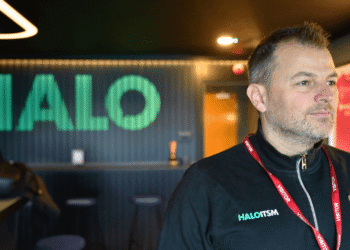Harvard research revealed employees armed with GPT-4 complete 12% more tasks on average and are 25% faster. It also showed a 40% increase in the quality of their output.
Another interesting insight was the difference between employees that used genAI for almost all of their tasks (lovingly referred to as ‘cyborgs’), versus employees that used genAI for specific tasks they felt the machine was more suited to undertaking (referred to as ‘centaurs’).
For channel marketing teams this is the first challenge. Do you enable and equip employees with the best genAI has to offer (and there are already tens of thousands of fine-tuned language and diffusion models) in a secure environment, and encourage them to experiment and enhance output, or stick to tried and tested models for predefined tasks? At $20 per user per month, ChatGPT Plus gives a user access to some of the world’s best LLM and diffusion models. Admittedly you sacrifice all of your data to OpenAI for foundation model training purposes (unless you deliberately opt out or you’re an API or enterprise customer), but if you put some usage guidelines in place, you get some serious content boosts.
With its capacity to perform tasks, learn, adapt, and execute actions relatively independently, genAI gives channel marketing teams a massive competitive advantage over those that aren’t using it.
It enables marketing teams to automate repetitive tasks, gain valuable insights through data analysis, personalise customer experiences, and enhances strategic decision-making. And as routine tasks are taken care of, marketing professionals can focus on creative and strategic aspects. This implies an improved workflow, increased productivity, and, ultimately, a more dynamic and efficient marketing team.
For example, why not write and deploy custom prompts for your wider team? Develop prompts with your company’s USPs and tone of voice ‘baked in’ to ensure even the less creatively abled in your organisation are able to develop great content without marketing being a blocker to real time requirements. Moving outside of your direct company, I wonder how many vendors are giving resellers access to private genAI environments augmented with vendor-specific collateral enabling the quick and easy answering of solution/service questions and production of vendor ‘flavoured’ content via the use of fine-tuned language models? Wouldn’t it be splendid if a VAR could log into a vendor genAI environment and produce six months’ worth of social media content in two minutes, that doesn’t make them look the same as every other reseller, based on the vendor’s latest thought leadership and product updates? Given the channel is all about partner enablement, I’d be surprised if this isn’t already the reality.
Another significant application of genAI in marketing lies in its power to analyse vast amounts of data, delivering valuable insights and predictions. Channel companies have a wealth of data at their disposal, from customer feedback to website analytics. Despite its potential value, this data often remains unutilised due to the sheer volume and the labour-intensive nature of manual analysis. The latest AI can quickly and easily process and analyse it, identifying trends, anticipating customer needs, calculating potential risks, and providing strategies for growth.
Additionally, genAI can personalise the customer experience, which is vital in today’s competitive IT landscape. By analysing customer data, it can identify customer personas, preferences, behaviour patterns, and thereby, help vendors, distis, VARs and MSPs tailor marketing strategies accordingly. Companies can use these insights to offer personalised recommendations, content, and experiences, enhancing the customer journey and ensuring higher customer engagement, loyalty, and conversion rates.
The potential of genAI extends further into predictive modelling and sales forecasting, content creation, social media monitoring and competitive analysis. It can predict future buying patterns, create engaging content using natural language processing, monitor social media trends and feedback, and analyse competitors’ performances. Just imagine the state of things when Elon releases a Grok API… as I saw a commentator pointing out the other day: “Grok could end up being the most powerful AI chat bot in the world. Why? Because it’s trained on LIVE up to the second social data. No other AI can answer questions or analyse events happening in real time. This unlocks incredible use cases.”
As this technology matures further, it will redefine the paradigms of marketing strategies within IT companies across the globe – you won’t be thinking about which agency to hire, or if you do, you’ll be using them to fine-tune language and image models to output a bespoke branded look and feel for your company. Adaptive and forward-thinking channel companies should, therefore, embrace genAI within their marketing functions; learn learn learn; make decisions on use cases; and all the time protect their confidential information from these AI behemoths – Samsung learnt the hard way early on that you can’t leave employees to make it up as they go along, and genAI can’t simply be viewed as a supplemental tool, instead it becomes a strategic component of the whole organisation’s operations.
Luke Budka
Luke Budka heads up the genAI team at Definition.
















